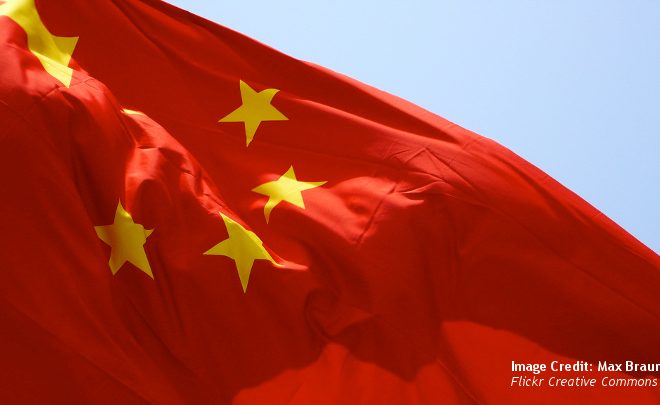‘Chinese Civil War’ in the Olympics Men’s Badminton Doubles: The Implication of Beijing’s Insecurity on Taiwan-related Issues

Taiwan has competed in the Olympic Games and other international sporting events under ‘Chinese Taipei’ since 1981. In the past few years, controversy over the nomenclature has been reported on by several international media. Awareness of the dispute between Taiwan (Chinese Taipei) and the People’s Republic of China (China) has been, again, raised due to the badminton match in the recently concluded Paris 2024 Olympics.
Tricky Situation for Spectators
On August 4, Chinese Taipei and China faced off in the men’s badminton doubles gold medal match at the Paris 2024 Olympics. It was noted that some Chinese Taipei (Taiwanese) supporters were asked to remove their signs and face paintings containing Taiwan-related elements, in line with the International Olympic Committee’s (IOC) regulations prohibiting flags or signs that include political messages or support countries not participating in the Olympics. Additionally, it was reported that China typically stations individuals to monitor the audience and reports any signs that may violate the IOC’s rules when Chinese Taipei is competing.
This practice of confiscating Taiwan-related signs is not surprising as it adheres to the agreement made in 1981. Yet, compared to the COVID-impacted Tokyo Olympics, during which no spectator was allowed to watch matches in any venue, the Paris 2024 Olympics with thousands of spectators in every arena offered Taiwan a better platform to physically engage with people from different countries. But this direct interaction also made confiscating practice obvious to spectators, granting observers a deeper insight into the delicate disputes and frictions that have characterized cross-strait relations. Through such occurrences, more people might be able to relate to Taiwan’s struggle while also increasing their scrutiny of China’s effort to control the narrative regarding Taiwan-related issues. Such situations may have a negative impact on China’s international reputation due to its harsh suppression of Taiwan in the sports world.
China’s Approach to Match against Chinese Taipei
The manner in which China broadcast the match demonstrates the high level of sensitivity regarding cross-strait relations. China Central Television (CCTV) only aired 40 out of 76 minutes of the game and did not broadcast the subsequent awards ceremony following the loss to the Chinese Taipei team. Three years ago, when Chinese Taipei played against China in the gold medal match in Tokyo, CCTV broadcast the whole game. This reflects Beijing’s attempts to control the domestic narrative regarding Taiwan-related issues by restricting information or footage deemed detrimental to the Chinese Communist Party’s (CCP) rule and social stability.
The potential for political upheaval is seen as a core threat to the party’s legitimacy to rule and ability to maintain popular support. With mounting domestic grievances including social stress caused by unemployment, housing foreclosures, weak domestic demand, increasing crime and suicide rates, there is more urgency for the leadership in Beijing to shape narratives that positively supports its rule. Thus, China has been outspokenly supporting and applauding IOC’s practice of confiscating Taiwan-related items in stadiums.
In addition, CCTV themselves play a crucial role in shaping the narrative so that Chinese audiences see Taiwan as an integral part of China. In the news, CCTV stated that “the Chinese combination Liang Wei Keng/Wang Chang was narrowly defeated by the Chinese Taipei combination by 1-2 and won second place” (中国组合梁伟铿/王昶1-2惜败中国台北组合获得亚军). The simplified Mandarin translation of Chinese Taipei, in this case, is different from how the Taiwanese translate it. ‘中国台北 (zhōng guó tái běi),’ as applied by CCTV, refers to Taipei as part of mainland China. Meanwhile, the term ‘中華台北 (zhōng huá tái běi),’ translated by Taiwan, refers to Taipei as part of the greater Chinese culture spectrum. The implication of the different translations reflects Beijing’s belief that Taiwan is a province of China. At the same time, Taiwan considers itself as a separate entity from China that shares a broad sense of Chinese culture.
Conclusion
The television coverage of the badminton match served as another attempt to blur the line between Taiwan and China. But it also depicts Beijing’s insecurity about how its citizens and internal support might be affected by Chinese Taipei’s positive image in the international stage. While the narrative presented by CCTV makes Taiwan look like a province under China, the suspension of broadcasting shows that Beijing is unwilling to publicize an instance where a ‘provincial team’ can defeat the mainland China team. Ironically, this approach might be a misplay as it could give space for Chinese citizens to doubt Beijing’s capacity to control Taiwan. Despite claiming that Taiwan is an inalienable part of its territory, the Olympic incident shows China’s lack of confidence in terms of this sensitive issue.